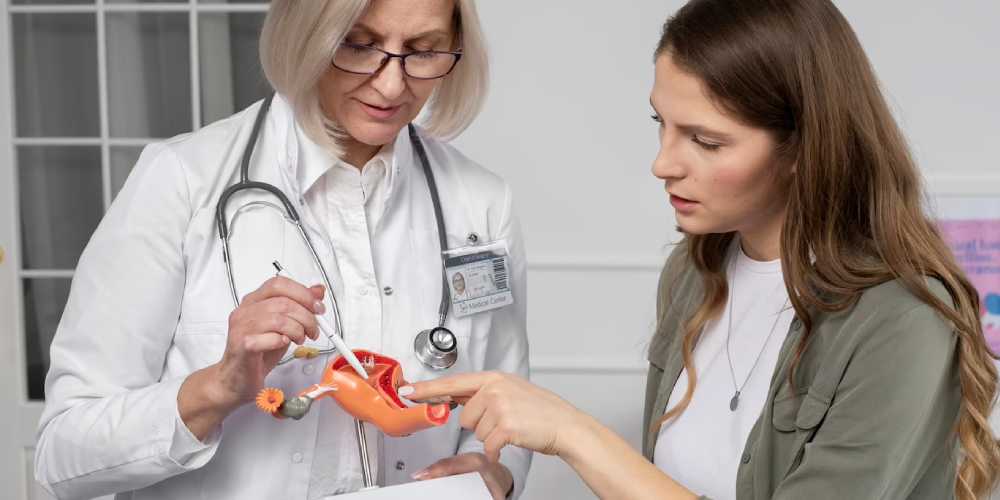
Urinary tract infections (UTIs) are a common ailment that affects millions yearly. In fact, UTIs are one of the most common reasons for visits to urgent care centers in West Hartford, CT. This condition occurs when bacteria enter the urinary tract, leading to inflammation and infection. If left untreated, UTIs can lead to severe complications, including kidney damage and sepsis. Therefore, recognizing the signs and symptoms of a UTI is crucial for timely diagnosis and treatment. In this blog post, we’ll discuss a UTI’s various signs and symptoms and how to recognize them.
A UTI is an infection that affects any part of the urinary system, including the kidneys, bladder, urethra, and ureters. Bacteria cause Most UTIs, primarily Escherichia coli (E. coli), which is found in the digestive system. Other types of bacteria can also cause UTIs, such as Klebsiella, Enterococcus, and Proteus.
UTIs can be classified into two main types based on the affected part of the urinary system. Understanding your UTI type is crucial in determining the appropriate treatment. If you suspect you have a UTI, visit urgent care in West Hartford, CT, such as DOCS Urgent Care – West Hartford, for expert medical care.
Lower urinary tract infections (UTIs) affect the bladder and urethra, which are the lower parts of the urinary system. These infections are more common and usually less severe than upper UTIs. Common symptoms of lower UTIs include:
Lower UTIs can be treated with antibiotics. If left untreated, they may spread to the upper urinary tract and cause more severe complications.
Upper urinary tract infections (UTIs) affect the kidneys and ureters, which are the upper parts of the urinary system. These infections are less common but can be more severe than lower UTIs. Common symptoms of upper UTIs include:
Upper UTIs require prompt medical attention, as they can lead to severe complications, such as kidney damage and sepsis. They’re usually treated with antibiotics, and hospitalization may be necessary in severe cases.
UTIs are caused by bacteria that enter the urinary system through the urethra and multiply in the bladder. Women are more prone to UTIs than men due to their shorter urethra, which makes it easier for bacteria to enter the bladder. Other risk factors for UTIs include:

The signs and symptoms of a UTI depend on the affected part of the urinary system. The following are some common symptoms of UTIs:
If left untreated, UTIs can lead to more severe health complications. Seeking prompt medical attention from urgent care in West Hartford, CT, such as DOCS Urgent Care – West Hartford, is crucial to prevent the following complications:
A kidney infection (pyelonephritis) is a severe UTI that can damage the kidneys and cause lasting health problems. Symptoms of a kidney infection include fever, chills, nausea, vomiting, and back pain. If you experience these symptoms, seek medical attention promptly.
Sepsis is a potentially life-threatening complication of a UTI that occurs when the infection spreads to the bloodstream. Symptoms of sepsis include fever, rapid heartbeat, rapid breathing, confusion, and low blood pressure. If you experience these symptoms, seek immediate medical attention at urgent care in West Hartford, CT.
Recurrent UTIs are defined as two or more infections within six months or three or more infections within a year. Recurrent UTIs can cause chronic pain and discomfort and damage the kidneys. Prompt medical attention is essential to prevent recurrent UTIs.
UTIs during pregnancy can increase the risk of complications such as premature delivery and low birth weight. Pregnant women with UTI symptoms should immediately seek urgent care in West Hartford, CT.
If you suspect that you have a urinary tract infection (UTI), it is crucial to seek medical attention promptly. A healthcare provider will conduct a physical examination and take a urine sample to diagnose the infection accurately. A urine culture may also be ordered to identify the specific bacteria causing the infection.
In West Hartford, CT, DOCS Urgent Care – West Hartford is a reputable healthcare facility that provides prompt medical attention for UTIs. Their experienced healthcare providers offer convenient walk-in services and extended hours to ensure timely UTI diagnosis and treatment.
Once diagnosed with a UTI, your healthcare provider will prescribe antibiotics to eliminate the bacterial infection. It is essential to complete the full course of antibiotics, even if symptoms improve. Abrupt cessation of antibiotics may lead to the recurrence or exacerbation of the infection.
Common antibiotics used to treat UTIs include nitrofurantoin, trimethoprim-sulfamethoxazole, and ciprofloxacin. The healthcare provider may prescribe medication to alleviate UTI symptoms such as pain and burning during urination.
In severe cases, hospitalization may be required for intravenous antibiotics. Additionally, surgery may be necessary to address complications such as urinary tract abnormalities or kidney stones.
Although antibiotics are the most effective treatment for UTIs, home remedies can be beneficial in alleviating symptoms and promoting faster healing. These remedies can be particularly useful if you cannot immediately reach an urgent care center in West Hartford, CT.
Drinking plenty of water can help flush out bacteria from your urinary tract and reduce the likelihood of infection. Aim to drink at least eight 8-ounce glasses of water per day.
Cranberry juice has been found to contain compounds that can prevent bacteria from adhering to the bladder wall, reducing the risk of UTIs. However, no conclusive evidence exists that cranberry juice can treat a UTI.
Probiotics, such as yogurt and kefir, contain good bacteria that can help restore the balance of bacteria in the urinary tract. This can help reduce the risk of UTIs and promote faster healing.
Spicy foods, caffeine, alcohol, and carbonated drinks can irritate the bladder and worsen UTI symptoms. Avoiding these foods can help alleviate symptoms and promote faster healing.
Applying heat to the lower abdomen can help alleviate UTI symptoms, such as pain and discomfort. Use a heating pad or take a warm bath to apply heat to the affected area.

You can reduce your risk of getting a UTI by following these prevention methods:
Drinking plenty of water is one of the most effective ways to reduce your risk of getting a UTI. Water helps flush out bacteria from your urinary tract, reducing the chances of an infection. Aim to drink at least eight 8-ounce glasses of water per day.
After using the restroom, always wipe from front to back. This helps prevent bacteria from the anus from spreading to the urethra, reducing the risk of UTIs.
This can help flush out any bacteria that may have entered the urethra during intercourse, reducing the risk of UTIs. It’s essential to urinate as soon as possible after sex to help prevent bacteria from spreading.
Using irritating products can irritate your urethra and increase the risk of UTIs. Avoid using feminine hygiene sprays, douches, and powders, as they can cause irritation and inflammation. Instead, stick to gentle soaps and warm water for cleaning.
Tight-fitting clothing can trap moisture and bacteria, increasing the risk of UTIs. Wear loose-fitting, breathable clothing, such as cotton underwear and pants, to allow air to circulate and reduce the risk of UTIs.
It’s important to seek medical attention immediately if you experience severe symptoms such as blood in the urine, vomiting, or high fever. These symptoms may indicate a more severe infection that requires hospitalization.
Remember, seeking prompt medical attention is essential in preventing the spread of infection and promoting faster healing. If you suspect you have a UTI, do not delay seeking medical attention. For timely and effective treatment, visit urgent care in West Hartford, CT, such as DOCS Urgent Care – West Hartford.
After receiving treatment for a UTI, following up with your healthcare provider to ensure complete recovery and prevent recurrent UTIs is essential. Here are some reasons why follow-up care is crucial:
Although antibiotics are highly effective in treating UTIs, ensuring complete healing is important. Your healthcare provider may order a urine culture to confirm that the infection has been completely eliminated. This will help prevent recurrent UTIs and ensure complete healing.
Underlying health conditions such as kidney stones, bladder tumors, or prostate enlargement can increase the risk of UTIs. Follow-up care can help identify and address these underlying conditions, reducing the risk of recurrent UTIs.
Overuse or misuse of antibiotics can lead to antibiotic resistance, making future infections more difficult to treat. Follow-up care can ensure that antibiotics are prescribed only when necessary and help prevent antibiotic resistance.
UTIs are a common condition that can be easily diagnosed and treated. It’s crucial to recognize the signs and symptoms of a UTI to seek medical attention promptly. If you are experiencing any of these symptoms, visit DOCS Urgent Care – West Hartford for the best urgent care in West Hartford, CT. They offer convenient walk-in services, extended hours, and experienced healthcare providers who can diagnose and treat UTIs promptly. Remember, UTIs can lead to severe complications if left untreated, so seeking medical attention is crucial.

During this surge in COVID-19 cases, our primary focus is meeting the high demand for tests, and we are seeing higher than usual wait times. This means we are unable to answer most phone calls. Please know that our teams are working very hard during this time to care for as many patients as safely as possible. Please click the button below for answers to common questions. We appreciate your understanding.